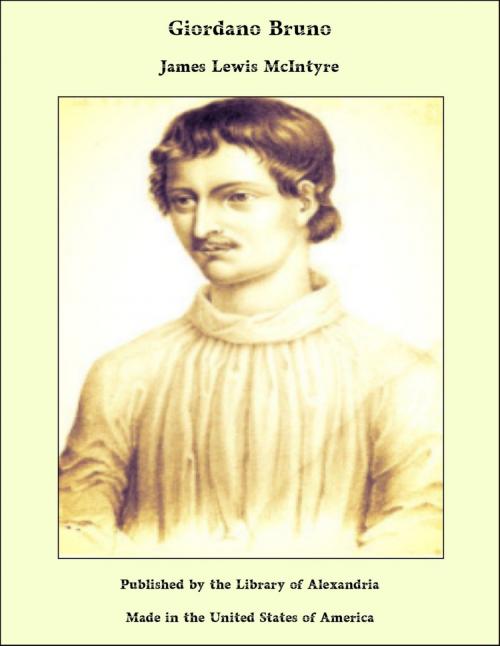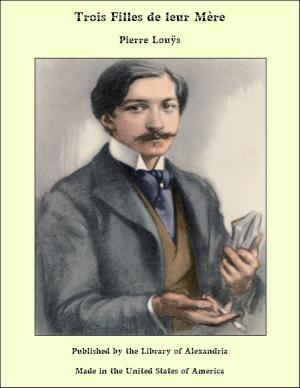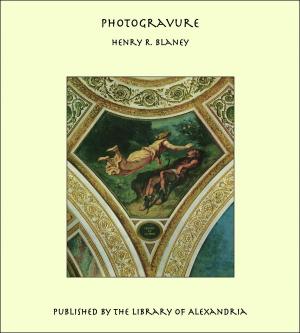| Author: | James Lewis McIntyre | ISBN: | 9781465608147 |
| Publisher: | Library of Alexandria | Publication: | March 8, 2015 |
| Imprint: | Language: | English |
| Author: | James Lewis McIntyre |
| ISBN: | 9781465608147 |
| Publisher: | Library of Alexandria |
| Publication: | March 8, 2015 |
| Imprint: | |
| Language: | English |
This volume attempts to do justice to a philosopher who has hardly received in England the consideration he deserves. Apart from the Life of Giordano Bruno, by I. Frith (Mrs. Oppenheim), in the English and Foreign Philosophical Library, 1887, there has been no complete work in our language upon the poet, teacher, and martyr of Nola, while his philosophy has been treated only in occasional articles and reviews. Yet he is recognised by the more liberal-minded among Italians as the greatest and most daring thinker their country has produced. The pathos of his life and death has perhaps caused his image to stand out more strongly in the minds of his countrymen than that of any other of their leaders of thought. A movement of popular enthusiasm, begun in 1876, resulted, on 9th June 1889, in the unveiling of a statue in Rome in the Campo dei Fiori, the place on which Bruno was burned. Both in France and in Germany he has been recognised as the prophet, if not as the actual founder, of modern philosophy, and as one of the earliest apostles of freedom of thought and of speech in modern times. The of the present work—the Life ofBruno—is based upon the documents published by Berti, Dufour, and others, and on the personal references in Bruno’s own works. I have tried to throw some light on Bruno’s life in England, on his relations with the French Ambassador, Mauvissière, and on his share in some of the literary movements of the time. I have, however, been no more successful than others in finding any documents referring directly to Bruno’s visit to England. In the —The Philosophy of Bruno—I have sought to give not a systematic outline of Bruno’s philosophy as a whole under the various familiar headings, which would prove an almost impossible task, but a sketch, as nearly as possible in Bruno’s own words, of the problems which interested this mind of the sixteenth century, and of the solutions offered. The points out the sources from which Bruno derived the materials of his thinking.
This volume attempts to do justice to a philosopher who has hardly received in England the consideration he deserves. Apart from the Life of Giordano Bruno, by I. Frith (Mrs. Oppenheim), in the English and Foreign Philosophical Library, 1887, there has been no complete work in our language upon the poet, teacher, and martyr of Nola, while his philosophy has been treated only in occasional articles and reviews. Yet he is recognised by the more liberal-minded among Italians as the greatest and most daring thinker their country has produced. The pathos of his life and death has perhaps caused his image to stand out more strongly in the minds of his countrymen than that of any other of their leaders of thought. A movement of popular enthusiasm, begun in 1876, resulted, on 9th June 1889, in the unveiling of a statue in Rome in the Campo dei Fiori, the place on which Bruno was burned. Both in France and in Germany he has been recognised as the prophet, if not as the actual founder, of modern philosophy, and as one of the earliest apostles of freedom of thought and of speech in modern times. The of the present work—the Life ofBruno—is based upon the documents published by Berti, Dufour, and others, and on the personal references in Bruno’s own works. I have tried to throw some light on Bruno’s life in England, on his relations with the French Ambassador, Mauvissière, and on his share in some of the literary movements of the time. I have, however, been no more successful than others in finding any documents referring directly to Bruno’s visit to England. In the —The Philosophy of Bruno—I have sought to give not a systematic outline of Bruno’s philosophy as a whole under the various familiar headings, which would prove an almost impossible task, but a sketch, as nearly as possible in Bruno’s own words, of the problems which interested this mind of the sixteenth century, and of the solutions offered. The points out the sources from which Bruno derived the materials of his thinking.















